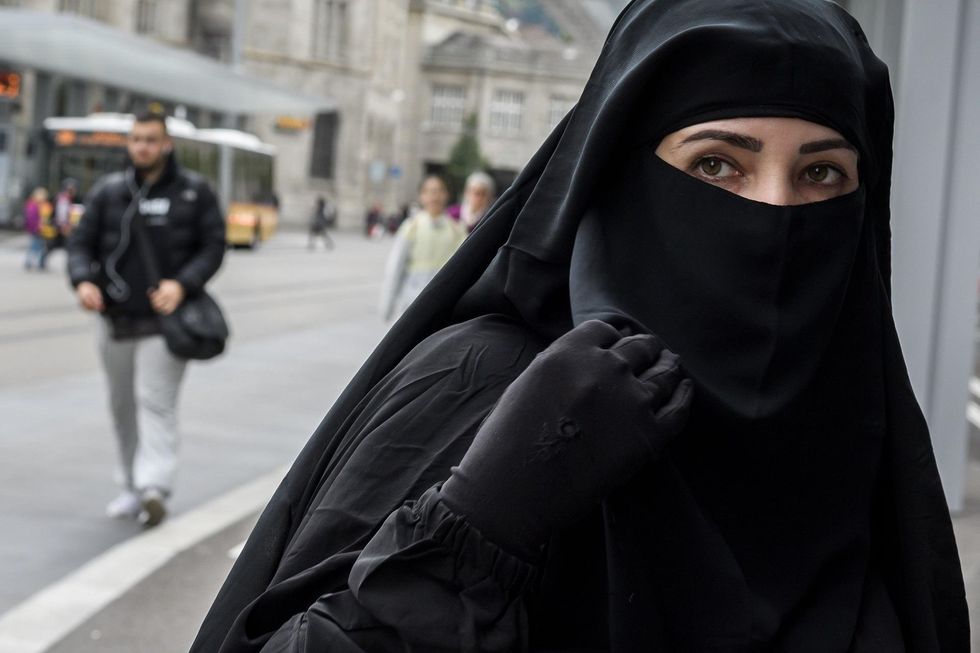
A United Nations panel has determined that France's ban on full-face veils, known as niqabs, violates human rights. (FABRICE COFFRINI/AFP/Getty Images)

The United Nations Human Rights Committee ruled Tuesday that France's ban on wearing full-face Islamic veils — called niqabs — in public is a violation of human rights and said the country should compensate women who were convicted for not following the law.
France implemented its so-called "burqa ban" in 2010, which stipulated, "No one may, in a public space, wear any article of clothing intended to conceal the face," according to Reuters.
Two women who were convicted for violating the ban in 2012 complained, leading to the review by a U.N. panel which monitors countries' compliance with the International Covenant on Civil and Political Rights.
The 18-person committee found that France failed to make the case for their burqa ban and gave the country 180 days to review the legislation and return with a solution.
"The State has not demonstrated how the full veil presents a threat in itself for public security to justify this absolute ban," the U.N.'s decision read.
The panel further wrote that "the ban, rather than protecting fully veiled women, could have the opposite effect of confining them to their homes, impeding their access to public services and marginalizing them."
The U.N. said in a news release that "anyone can bring an alleged violation of human rights to the attention of the United Nations committees tasked with monitoring the realization of various human rights treaties, and thousands of people around the world do so every year."
The recommendations made by the committee are not legally binding.
Last week, Algeria implemented its own ban on public sector employees wearing niqabs while at work, the Daily Mail reported. The Muslim-majority country issued the decision on Thursday, with Prime Minister Ahmed Ouayhia saying in a letter to ministers that civil servants need to "observe the rules and requirements of security and communication within their department."
Newspaper Asharq Al-Awsat noted that few women in Algeria wear niqabs and that the decision was issued in order to be able to provide identification of public servants.
However, not all Algerian lawmakers were on board with the ban — Masoud Amrawi called the new law "a declared war on Islam."
Other countries that have imposed restrictions on Muslim veils include The Netherlands, Belgium, Bulgaria, Egypt, Switzerland, Italy, and Chad.